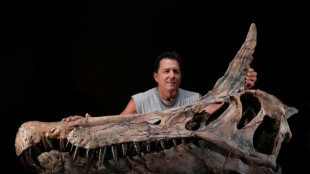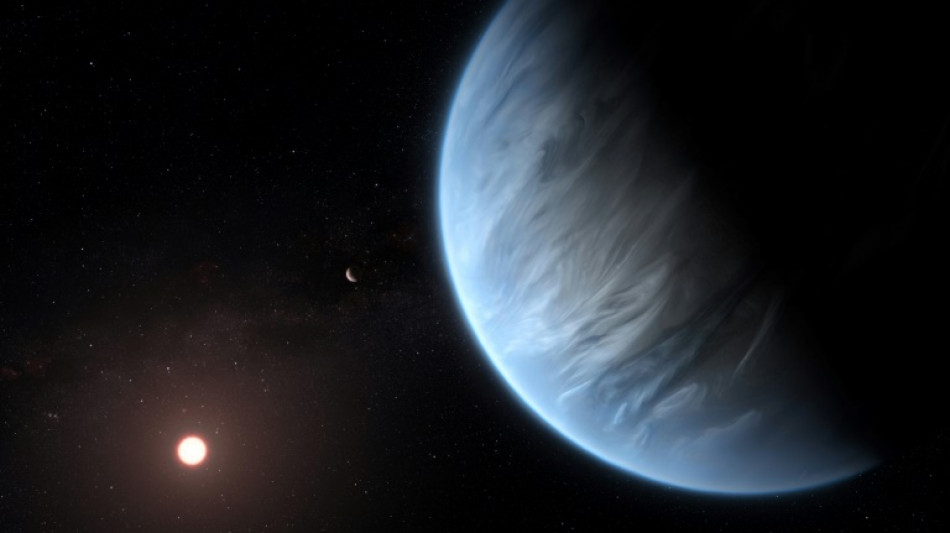
-
 Iranians across North America rally for -- and against -- strikes
Iranians across North America rally for -- and against -- strikes
-
Shakespeare would have shunned streaming, 'Hamnet' team says

-
 Will Oscars be 17th time lucky for songwriter Diane Warren?
Will Oscars be 17th time lucky for songwriter Diane Warren?
-
Sympathy for the bedeviled: the likable conspiracy theorist of 'Bugonia'

-
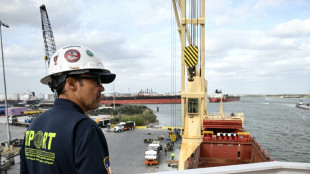 Texas port humming as Trump ramps up Venezuela oil
Texas port humming as Trump ramps up Venezuela oil
-
76ers' center Embiid to miss at least three games with oblique strain

-
 US, Israel defend strikes at UN as Iran alleges 'war crime'
US, Israel defend strikes at UN as Iran alleges 'war crime'
-
Brumbies' 'mental resolve' keeps them unbeaten in Super Rugby

-
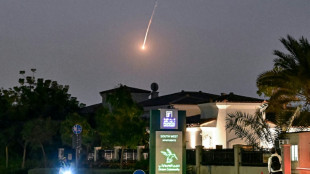 Iran attacks rock Dubai's Palm, Burj Al Arab, airport
Iran attacks rock Dubai's Palm, Burj Al Arab, airport
-
Iran leader Khamenei killed in massive US and Israeli attack, Trump says

-
 UK pop-soul star Olivia Dean sweeps Brit Awards
UK pop-soul star Olivia Dean sweeps Brit Awards
-
Iranians across North America take to the streets for - and against - strikes

-
 'Turning point' as Crusaders notch first Super Rugby win
'Turning point' as Crusaders notch first Super Rugby win
-
White House releases photos of Trump, Vance during Iran ops
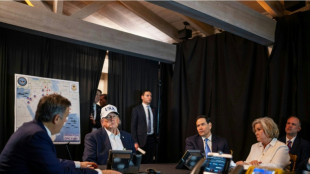
-
 PSG win to extend lead over Lens at top of Ligue 1
PSG win to extend lead over Lens at top of Ligue 1
-
Barca's Yamal nets hat-trick in Villarreal romp, Atletico go third

-
 Trump says Khamenei is dead after Israel, US attack Iran
Trump says Khamenei is dead after Israel, US attack Iran
-
Iran's Khamenei: ruthless revolutionary atop Islamic republic

-
 Inter continue Scudetto march after Champions League humbling
Inter continue Scudetto march after Champions League humbling
-
Questions cloud Trump's case for war against Iran

-
 Latest developments in US, Israel strikes on Iran
Latest developments in US, Israel strikes on Iran
-
Fears of Mideast war as US-Iran conflict flares

-
 Guardiola expects short absence for injured Haaland
Guardiola expects short absence for injured Haaland
-
Liverpool's set play transformation a return to 'normal' for Slot

-
 Man City win to close on Arsenal as Liverpool hit five
Man City win to close on Arsenal as Liverpool hit five
-
Kane bags brace as Bayern end Dortmund's title hopes

-
 Semenyo sinks Leeds as Man City close gap on Arsenal
Semenyo sinks Leeds as Man City close gap on Arsenal
-
Last-gasp Lukaku saves Napoli's blushes at rock-bottom Verona

-
 Could the US-Israel war on Iran drag on?
Could the US-Israel war on Iran drag on?
-
Iranians abroad jittery but jubilant at US, Israeli strikes

-
 Pakistan 'have underperformed' says Agha after T20 World Cup exit
Pakistan 'have underperformed' says Agha after T20 World Cup exit
-
Under-strength Toulouse overpower Montauban in Top 14

-
 Vietnam AI law takes effect, first in Southeast Asia
Vietnam AI law takes effect, first in Southeast Asia
-
Brazil's Lula visits flood zone as death toll from landslides hits 70

-
 New Zealand into T20 World Cup semis as Sri Lanka avoid big Pakistan loss
New Zealand into T20 World Cup semis as Sri Lanka avoid big Pakistan loss
-
Medvedev wins Dubai title as Griekspoor withdraws

-
 First Yamal hat-trick helps Liga leaders Barcelona beat Villarreal
First Yamal hat-trick helps Liga leaders Barcelona beat Villarreal
-
Liverpool hit five past West Ham, Haaland-less City face Leeds test

-
 Van der Poel romps to cobbled classic win
Van der Poel romps to cobbled classic win
-
Republicans back Trump, Democrats attack 'illegal' Iran war
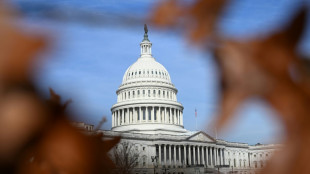
-
 Madonna is surprise attraction at Dolce & Gabbana Milan show
Madonna is surprise attraction at Dolce & Gabbana Milan show
-
Farhan keeps Pakistan hopes alive as they post 212-8 against Sri Lanka

-
 Afghanistan says civilians killed in Pakistan air strikes
Afghanistan says civilians killed in Pakistan air strikes
-
Tug of war: how US presidents battle Congress for military powers

-
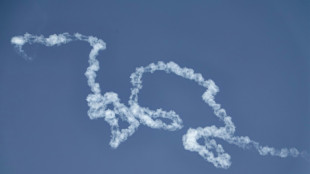 Residents flee as Iran missiles stun peaceful Gulf cities
Residents flee as Iran missiles stun peaceful Gulf cities
-
Streets empty and shops close as US strikes confirm Iranian fears

-
 Israelis shelter underground as Iran fires missiles
Israelis shelter underground as Iran fires missiles
-
Bournemouth held by Sunderland in blow to European bid

-
 VAR expanded to include second bookings and corners for World Cup
VAR expanded to include second bookings and corners for World Cup
-
Iranians in Istanbul jittery but jubilant at US, Israeli strikes


Doubt cast on claim of 'hints' of life on faraway planet
When astronomers announced last month they might have discovered the most promising hints of alien life yet on a distant planet, the rare good news raised hopes humanity could soon learn we are not alone in the universe.
But several recent studies looking into the same data have found that there is not enough evidence to support such lofty claims, with one scientist accusing the astronomers of "jumping the gun".
The debate revolves around the planet K2-18b, which is 124 light years away in the Leo constellation.
The planet is thought to be the right distance from its star to have liquid water, making it a prime suspect in the search for extraterrestrial life.
Last month, astronomers using the James Webb Space Telescope made headlines by announcing they had detected hints of the chemicals dimethyl sulfide (DMS) and dimethyl disulfide (DMDS) on the planet.
These chemicals are only produced by life such as marine algae on Earth, meaning they are considered potential "biosignatures" indicating life.
The astronomers, led by Cambridge University's Nikku Madhusudhan, expressed caution about the "hints" of a biosignature, emphasising they were not claiming a definitive discovery.
Their detection had reached a three-sigma level of statistical significance "which means there is still a three in 1,000 chance of this being a fluke," Madhusudhan said at the time.
- Biosignatures 'vanish' -
Two of Madhusudhan's former students, Luis Welbanks of Arizona State University and Matthew Nixon of Maryland University, were among the researchers who have since re-analysed the data behind the announcement.
When deploying other statistical models, "claims of a potential biosignature detection vanish", according to their preprint study published online late last month.
Like the other papers since the April announcement, it has not been peer-reviewed.
In one model, Welbanks and colleagues expanded the number of possible chemicals that could explain the signals detected by Webb to 90 from the original 20.
More than 50 received a "hit", Welbanks told AFP.
"When you detect everything, did you really detect anything?" he asked.
They are not saying the planet definitely does not have DMS -- just that more observations are needed, Welbanks added.
- 'Arguments are healthy' -
Madhusudhan welcomed the robust debate, saying that remaining open to all possibilities is an essential part of the scientific method.
"These sort of arguments are healthy," he told AFP.
His team even went further, releasing their own preprint study last week that expanded the number of chemicals even further to 650.
The three most "promising" chemicals they found included DMS but not DMDS -- a major part of the team's announcement in April.
The other two chemicals were diethyl sulfide and methyl acrylonitrile, the latter of which is toxic.
Madhusudhan admitted that these little-known chemicals are likely not "realistic molecules" for a planet like K2-18b.
Welbanks pointed out that "in the span of a month -- with no new data, with no new models, with no new laboratory data -- their entire analysis changed".
- 'Closest we have ever been' -
Telescopes observe such far-off exoplanets when they cross in front of their star, allowing astronomers to analyse how molecules block different wavelengths of light streaming through their atmosphere.
Earlier this week, a paper led by Rafael Luque at the University of Chicago combined Webb's observations of K2-18b in both the near-infrared and mid-infrared wavelengths of light.
It also found "no statistical significance for DMS or DMDS", the paper said.
An earlier paper by Oxford astrophysicist Jake Taylor using a basic statistical test also found no strong evidence for any biosignatures.
Madhusudhan dismissed the latter paper, saying the simple exercise did not account for observing physical phenomena.
He also stood by his research, saying he was "just as confident" in the work as he was a month ago.
More data about K2-18b will come in over the next year which should offer a much clearer picture, Madhusudhan added.
Even if the planet does have DMS, it is not a guarantee of life -- the chemical has been detected on a lifeless asteroid.
However, many researchers do believe that space telescopes could one day collect enough evidence to identify alien life from afar.
"We are the closest we have ever been" to such a moment, Welbanks said.
"But we have to use the frameworks that are in place and build up (evidence) in a reliable method, rather than using non-standard practices and jumping the gun -- as has been done in this particular case," Nixon added.
H.E.Young--AMWN



